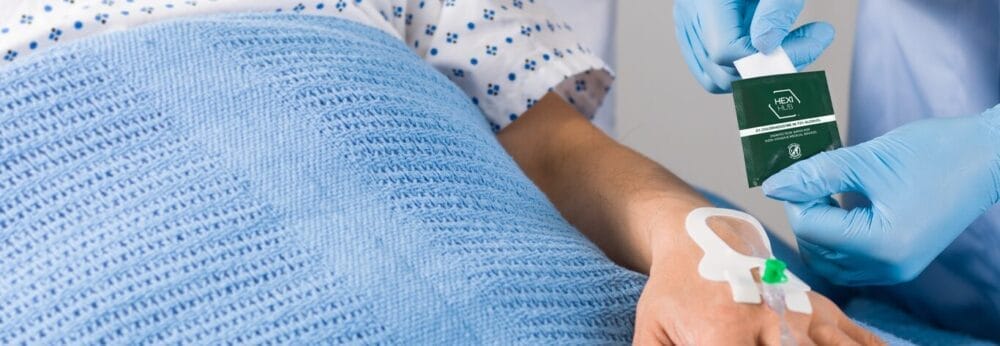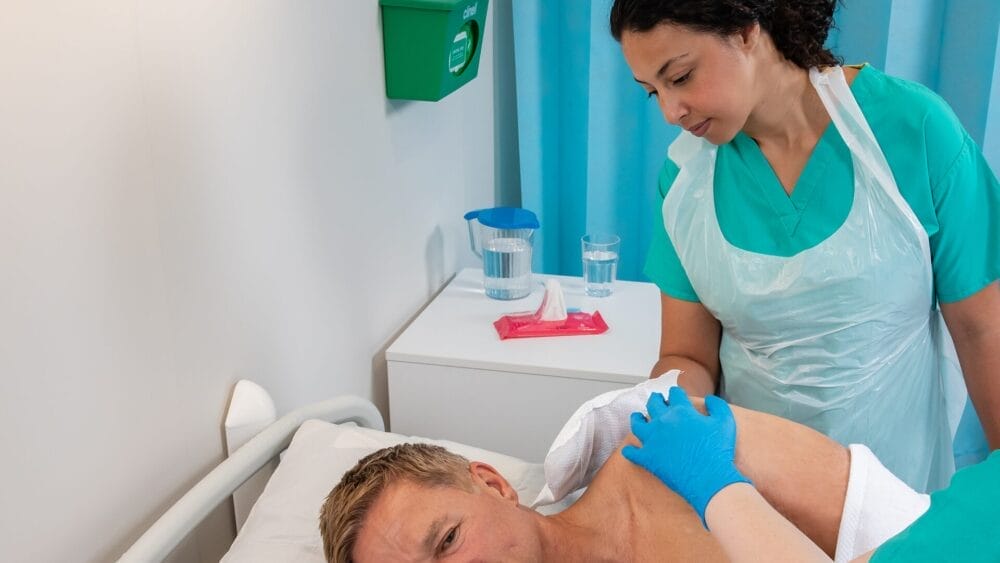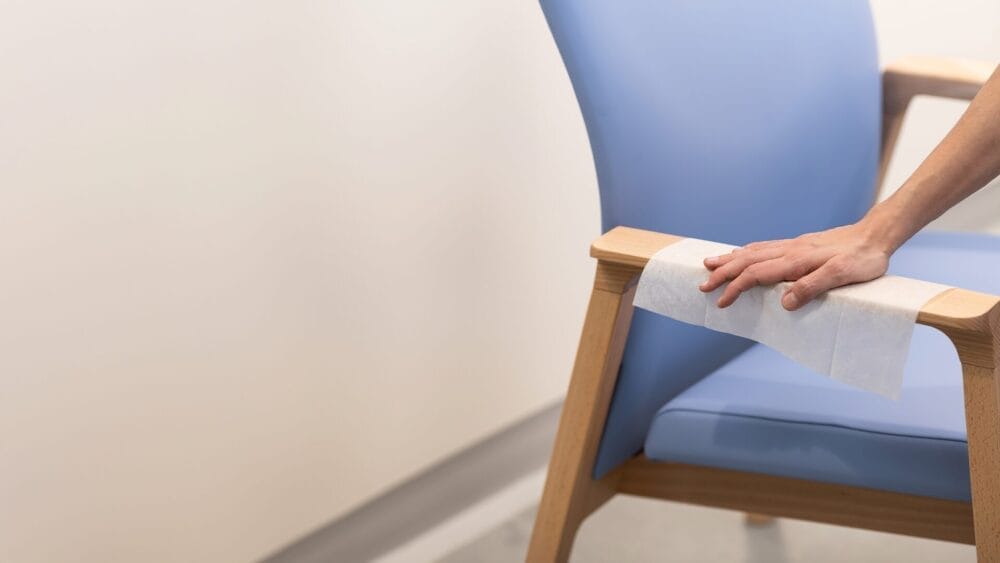Posted
7th December 2021
Events and Exhibitions
We summarise our highlights from this year’s Environment, Cleaning and Decontamination Infection Prevention Society (IPS) Educational Pillar. We discuss waterborne infection transmission, the role of ventilation in IPC, the misuse of PPE and more. Read on to discover what resonated most with our Clinical team.
What is the Environment, Cleaning and Decontamination (ECD) IPS Educational Pillar?
This inaugural event, headed by IPS Vice President Lisa Butcher, focused on new and innovative discussions on cleaning and decontamination. Held on the 23rd November the event attracted over 120 delegates, with sessions focusing on water, ventilation, decontamination, environmental cleaning, and hand hygiene.
Water safety and chain of infection
Daniel Pitcher, the founder of the Water Hygiene Centre, opened the event discussing key elements of waterborne infection transmission. Daniel spoke about many interesting aspects of water hygiene, such as the removal of unused sinks and basins, the indirect transmission of infection from staff to patients and retrograde infections, and placed great emphasis on dry and wet biofilms. He highlighted how water can reach up to 2 meters away from hand wash basins, and how poor or ineffective cleaning and decontamination of sinks can contribute to retrograde infections for both staff and patients. He offered a three-prong solution:
- Ensure the building design for hospital plumbing is proactively constructed to prevent the development of biofilms.
- Ensure the correct use and storage of effective cleaning products.
- Retrain staff on the correct use of sinks and cleaning guidance for outlets e.g. cleaning from top to bottom.
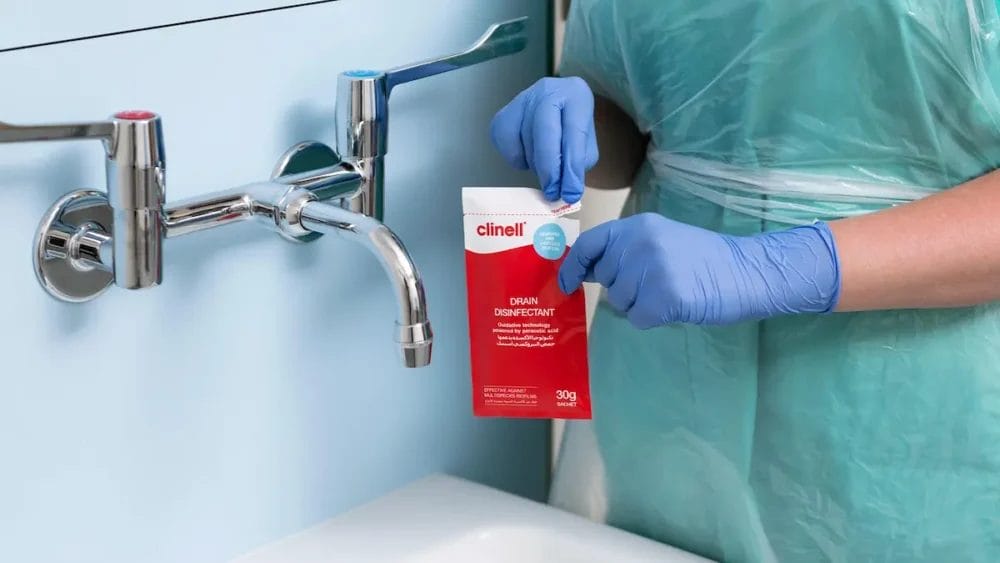
The role of ventilation in infection, prevention and control (IPC)
Peter Hoffman, Consultant Clinical Scientist, Public Health England, focused on a multimodal approach to air decontamination presenting a compelling case on how we could improve the quality of air within clinical settings. He dispelled many of the ambiguities surrounding the wrongful association of ‘cold air’ and ‘fresh air’ and how the term ‘fresh air’ is ill defined. He also explained how we can improve air quality through passive means such as natural ventilation, by e.g. simply opening a window. He emphasised that natural ventilation can also be achieved within the hospital building design, which he illustrated by using Portcullis House as an example. He also emphasised mechanical ventilation, stating that one air change is not sufficient for effective ventilation and that the more air changes we have the better.
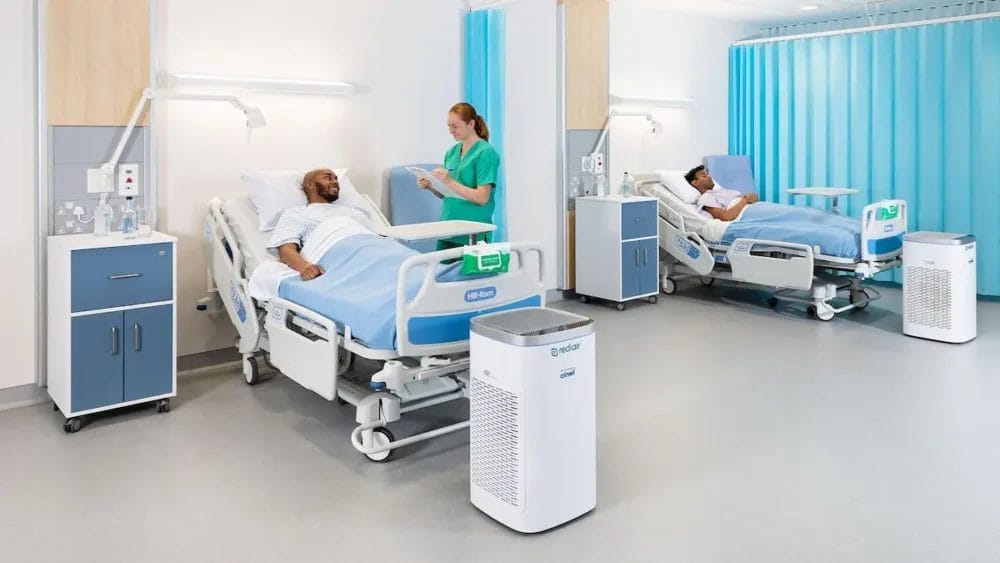
Decontamination
Karren Staniforth, Clinical Scientist and Chair of the HIS Working Party for Theatre Ventilation, presented many of the gaps in understanding decontamination, specifically the difference between disinfection and decontamination. Karen emphasised that clinicians should know the criteria for clinical device cleaning, when choosing cleaning and decontamination products for their trusts, including the range of activity/efficacy, the rate at which it kills microbes and that there should be more awareness regarding the correct EN testing criteria for the products being selected.

Hand Hygiene
Dr. Jon Otter, DIPC at Guy’s and St Thomas’ Hospital tackled ‘The Thorny 5th Moment of Hand Hygiene’. He described the rapid and dynamic interchange between surface and hand hygiene, suggesting that these two-contact areas can never be mutually exclusive from one another. He summarised the importance of hand/surface hygiene into 4 categories:
- Microbes – which microorganisms are present and whether they can form biofilms.
- Amount shed – What can we do to our patients to limit shedding e.g. using chlorohexidine or limiting shaving.
- Environment – Density of patients and movement/ transactions within a space .
- Behavioural drivers- the culture of hand hygiene compliance and training offered to staff.
The panel session
There were many questions asked surrounding improving compliance and what IPC will look like post-pandemic. The ongoing debate over gloves use was raised. It was discussed that the government guidance during the pandemic led to an overuse of gloves, and not nearly enough encouragement for proper hand hygiene in the healthcare setting. It was raised that a more elaborate collection of hand hygiene resources, such as water-free spaces and hand wipes, would help reduce the misuse of PPE equipment such as gloves in the future.
Are healthcare workers an asset or liability in cleaning and decontamination?
Martin Kiernan, Clinical Director, GAMA Healthcare presented many case studies regarding patient satisfaction regarding cleanliness, in which he reveals a correlation between rates of infection and patients’ satisfaction i.e. hospitals which had more patients complaining about the level or frequency of cleaning, usually had the higher levels of nosocomial infections. Martin outlined many of his personal experiences and reiterated that staff need encouragement through multiple methods such as access and time for quality training, increased communication between ward staff and cleaners, and that by changing the attitude towards cleaning, clinicians would be more inclined to adhere to decontamination and cleaning guidance.
Overall, it was a great inaugural event and it successfully stoked general interest in ECD for which the event organisers must be congratulated. If you’d like to find out more about the recent events the GAMA Healthcare team has attended, visit our Events and Exhibitions section on our blog.
SHARE THIS ARTICLE
Tags
Latest News
Embracing sustainability and cost savings: The journey of Clinell Indicator Notes to paper-based solutions
At GAMA Healthcare, we’ve always prided ourselves on being at…
Introducing HEXI HUB: A seamless transition in our product line
We’re pleased to announce an update to our product offering…
Innovative solutions for tackling Carbapenemase-producing Enterobacteriaceae (CPE) at King’s College Hospitals
King’s College Hospital NHS Foundation Trust, one of London’s largest…
Gloves Off: reducing unnecessary plastic waste during environmental cleaning and disinfection
In this blog, Dr Phil Norville discusses the momentum-gaining ‘Gloves…


